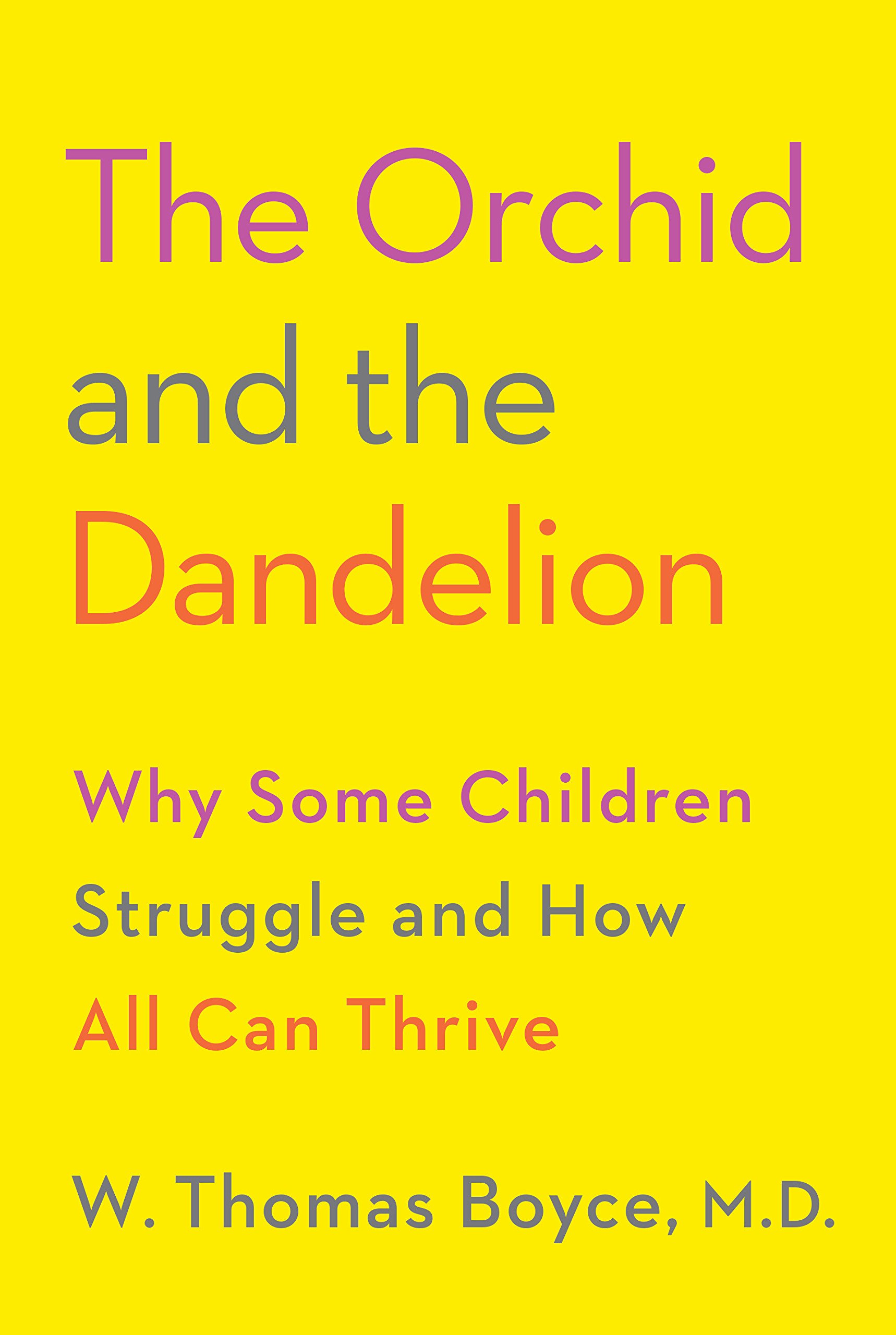The Orchid and the Dandelion | W. Thomas Boyce

Detalii The Orchid and the Dandelion
Produs actualizat în urmă cu 3 luni
Descriere YEO:
Descriere magazin:
A book that offers hope and a pathway to success for parents, teachers, psychologists, and child development experts coping with difficult children. In Tom Boyce\'s extraordinary new book, he explores the "dandelion" child (hardy, resilient, healthy), able to survive and flourish under most circumstances, and the "orchid" child (sensitive, susceptible, fragile), who, given the right support, can thrive as much as, if not more than, other children. Boyce writes of his pathfinding research as a developmental pediatrician working with troubled children in child-development research for almost four decades, and explores his major discovery that reveals how genetic make-up and environment shape behavior. He writes that certain variant genes can increase a person\'s susceptibility to depression, anxiety, attention deficit hyperactivity disorder, and antisocial, sociopathic, or violent behaviors. But rather than seeing this "risk" gene as a liability, Boyce, through his daring research, has recast the way we think of human frailty, and has shown that while these "bad" genes can create problems, they can also, in the right setting and the right environment, result in producing children who not only do better than before but far exceed their peers. Orchid children, Boyce makes clear, are not failed dandelions; they are a different category of child, with special sensitivities and strengths, and need to be nurtured and taught in special ways. And in The Orchid and the Dandelion, Boyce shows us how to understand these children for their unique sensibilities, their considerable challenges, their remarkable gifts.

The Orchid and the Dandelion - Disponibil la carturesti.ro
Pe YEO găsești The Orchid and the Dandelion de la Knopf, în categoria Carte straina.
Indiferent de nevoile tale, The Orchid and the Dandelion | W. Thomas Boyce din categoria Carte straina îți poate aduce un echilibru perfect între calitate și preț, cu avantaje practice și moderne.
Caracteristici și Avantaje ale produsului The Orchid and the Dandelion
- Departament: gaming-carti-birotica
- Ideal pentru pasionații de jocuri, birotică și distracție online.
Preț: 90 Lei
Caracteristicile produsului The Orchid and the Dandelion
- Brand: Knopf
- Categoria: Carte straina
- Magazin: carturesti.ro
- Ultima actualizare: 27-10-2025 01:24:43
Comandă The Orchid and the Dandelion Online, Simplu și Rapid
Prin intermediul platformei YEO, poți comanda The Orchid and the Dandelion de la carturesti.ro rapid și în siguranță. Bucură-te de o experiență de cumpărături online optimizată și descoperă cele mai bune oferte actualizate constant.
Descriere magazin:
A book that offers hope and a pathway to success for parents, teachers, psychologists, and child development experts coping with difficult children. In Tom Boyce\'s extraordinary new book, he explores the "dandelion" child (hardy, resilient, healthy), able to survive and flourish under most circumstances, and the "orchid" child (sensitive, susceptible, fragile), who, given the right support, can thrive as much as, if not more than, other children. Boyce writes of his pathfinding research as a developmental pediatrician working with troubled children in child-development research for almost four decades, and explores his major discovery that reveals how genetic make-up and environment shape behavior. He writes that certain variant genes can increase a person\'s susceptibility to depression, anxiety, attention deficit hyperactivity disorder, and antisocial, sociopathic, or violent behaviors. But rather than seeing this "risk" gene as a liability, Boyce, through his daring research, has recast the way we think of human frailty, and has shown that while these "bad" genes can create problems, they can also, in the right setting and the right environment, result in producing children who not only do better than before but far exceed their peers. Orchid children, Boyce makes clear, are not failed dandelions; they are a different category of child, with special sensitivities and strengths, and need to be nurtured and taught in special ways. And in The Orchid and the Dandelion, Boyce shows us how to understand these children for their unique sensibilities, their considerable challenges, their remarkable gifts.




